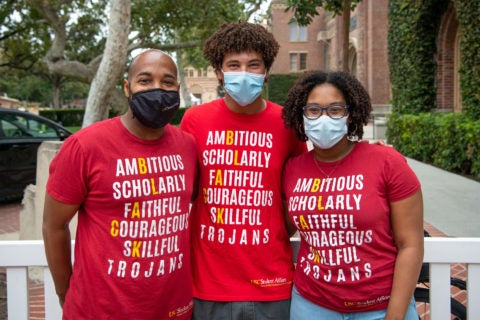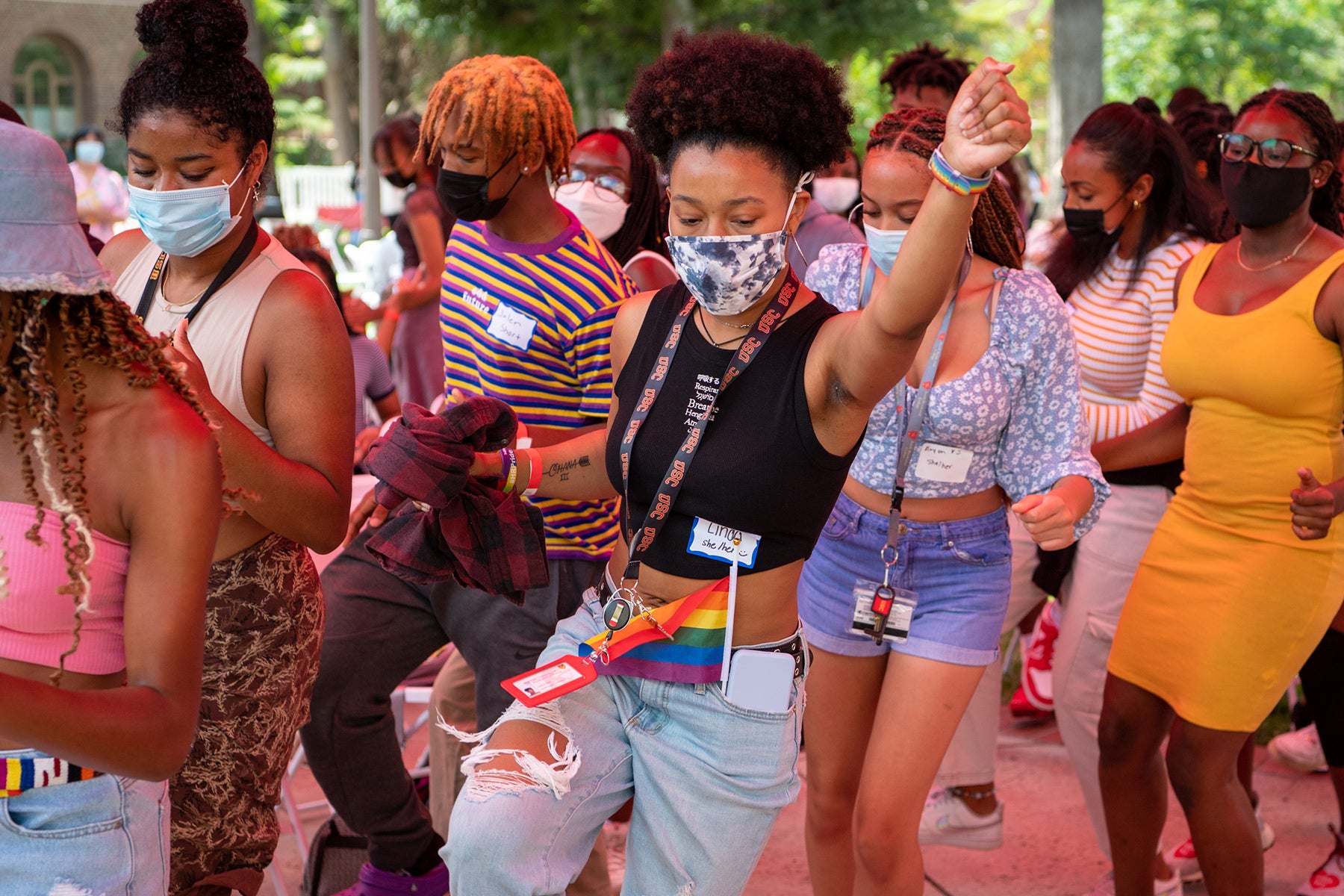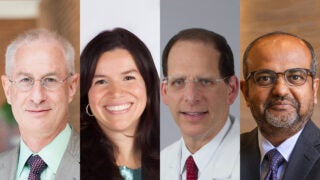USC welcomes a diverse class with resources, advice and connections
USC’s Student Equity and Inclusion Programs kick off fall with a message from the university’s many identity-specific resource centers and student communities: “You belong here.”
Nearly 1,500 new students stopped by USC’s Student Equity and Inclusion Programs Welcome on Sunday to learn about the many identity-specific resource centers and student communities in place to support them.
One message was repeated by the Student Affairs staff and student leaders who presented their support resources to the crowd: “You belong here.”
The emphasis on belonging is more than a feel-good aspiration. Research demonstrates that students who feel they belong at their college are less likely to drop out and more likely to succeed.
USC President Carol L. Folt welcomed the students, who she called “the center and the heart of USC.” She shared the record-breaking diversity of the entering class: 20% Latinx, 24% Asian Pacific Islander Desi American, 8% Black and 25% first-generation college students, with 46 veterans as students.
She also noted the revamped Student Affairs cultural center spaces and emphasized the importance of intersections and connections between these communities: “Our hope is that people will mix and move between these spaces. It is our chance to create a world we want the bigger world to be like.”
Folt also encouraged students to seek out the resources, communities, and connections available to them.

“I know your first week is not always the easiest thing … but you’re going to have so many incredible role models. You’re probably sitting next to a bunch of them right now,” she said.
“This is a huge and accomplished family, and almost everyone has a USC family story of Trojan connections, many of which were made in their first weeks of school.”
William Henry, senior and executive director for the Queer and Ally Student Assembly (QuASA), said organizations like his can make a big difference for students starting out at the university.
“I joined QuASA my freshman year, and I fell in love with the programs that it offers to students,” said Henry. “It helped me to find a welcoming group of queer students and friends which helped my experience at USC.”
Sharing personal stories through USC’s Student Equity and Inclusion Programs
USC Vice President for Student Affairs Winston Crisp shared some of the challenges he faced as the first in his family to attend college, and the personal growth and fulfillment he acquired in his college experience.
“I did experience barriers, injustices, micro and macro aggressions – and still do today – but I also found an extended family that cared about me because I was me,” he said. “I came to understand that I was smart enough; I was capable enough; and I did belong, and you do, too.”
Just before students were treated to lunch, an involvement fair and a dance party, Crisp offered these hopeful words: “You will enrich this place as you become. By the time you leave here, you will be empowered to live your whole, authentic, unapologetic selves,” he said. “You are Trojans now, and never be afraid to ask for help.”




